《改革开放40年中国人权事业的发展进步》白皮书
新华网 2018-12-13 11:20

国务院新闻办公室12日发表《改革开放40年中国人权事业的发展进步》白皮书,双语全文如下:
改革开放40年中国人权事业的发展进步
Progress in Human Rights over the 40 Years of Reform and Opening Up in China
中华人民共和国国务院新闻办公室
The State Council Information Office of the People's Republic of China
2018年12月
December 2018
目录
Contents
前言
Foreword
一、牢固树立尊重和保障人权的治国理政原则
I.Firmly Establishing a Governance Principle of Respecting and Protecting Human Rights
二、大幅提升生存权发展权保障水平
II.Better Protecting the Rights to Subsistence and Development
三、有效实现各项人权全面发展
III.Fully Developing Human Rights in All Respects
四、显著改善特定群体权利
IV.Ensuring the Rights of Special Groups
五、全面加强人权法治建设
V.Comprehensively Promoting the Rule of Law for Human Rights
六、努力推动各国人权事业共同发展
VI.Facilitating the Development of Human Rights in the World
七、积极参与全球人权治理
VII.Active Participation in Global Governance of Human Rights
八、成功走出符合国情的人权发展道路
VIII.Path of Human Rights Protection Suited to National Conditions
结束语
Conclusion
前言
Foreword
2018年,是中国改革开放40周年。改革开放是中国共产党在新的时代条件下带领全国人民进行的新的伟大革命,是决定当代中国命运的关键一招。改革开放极大地解放和发展了社会生产力,成功地开辟了中国特色社会主义道路,也揭开了中国人权事业发展的新篇章。
2018 marks the 40th anniversary of reform and opening up in China. The Communist Party of China (CPC) has led the people in carrying out this great new revolution in the new era-one that holds the key to the destiny of contemporary China. Reform and opening up has helped to liberate and develop social productive forces. It has opened up a path of socialism with Chinese characteristics, and ushered in a new chapter in the development of human rights.
40年来,在中国共产党的坚强正确领导下,中国人民团结一心、励精图治、艰苦奋斗、勇往直前,国家面貌发生了翻天覆地的变化,人民生活水平不断提高。中华民族迎来了从站起来、富起来到强起来的伟大飞跃。
Over the four decades, the Chinese people have worked hard as one under the strong and coherent leadership of the CPC. Huge changes have taken place, and living standards have significantly improved. The Chinese nation has risen and become prosperous and strong.
40年来,中国共产党始终把人民的利益放在首位,做到改革为了人民,改革依靠人民,改革成果由人民共享,切实维护最广大人民的根本利益,尊重人的价值和尊严,促进人的全面发展。
Over the four decades, the CPC has always prioritized the people's interests, ensuring that reform is conducted for the people and by the people, and that its benefits are shared by the people. It has worked to safeguard the fundamental interests of the overwhelming majority of the people, respect human values and dignity, and promote the well-rounded development of the people.
40年来,中国在改革开放中尊重人权,在改革开放中保障人权,在改革开放中促进人权,成功走出了一条符合国情的人权发展道路,创造了人类文明发展史上人权保障的新经验、新奇迹。
Over the four decades, China has showed respect for, protected and promoted human rights in the course of reform and opening up. It has blazed a trail of development in human rights that conforms to the national conditions, and created new experiences and new progress in safeguarding human rights.
40年来,中国总结历史经验,汲取人类文明发展成果,坚持把人权的普遍性原则与本国实际相结合,不断创新人权发展理念,形成了以人民为中心、以生存权发展权为首要的基本人权、以全面加强人权法治建设为路径、以各项人权综合协调发展为目标的人权发展新理念。
Over the four decades, China has summed up its historical experience, drawn on the achievements of human civilization, combined the universal principles of human rights with the prevailing realities of the country, and generated a series of innovative ideas on human rights. It has brought into being basic rights that center on the people and prioritize their rights to subsistence and development, and proposed that China should follow a path of comprehensive and coordinated human rights development under the rule of law.
40年来,中国广泛开展人权领域交流合作,认真履行国际人权义务,全面参与国际人权事务,积极促进全球人权治理体系变革,致力于构建人类命运共同体,为推动世界人权事业发展不断作出新贡献。
Over the four decades, China has carried out extensive exchanges and cooperation in the field of human rights, earnestly fulfilled its international human rights obligations, fully participated in international human rights affairs, actively promoted reform of the global human rights governance system, worked hard for the building of a global community of shared future, and made a consistent contribution to the international cause of human rights.
一、牢固树立尊重和保障人权的治国理政原则
I. Firmly Establishing a Governance Principle of Respecting and Protecting Human Rights
尊重和保障人权,是中国共产党和中国政府的坚定意志和不懈追求。改革开放40年来,“尊重和保障人权”先后载入中国共产党的全国代表大会报告、国家宪法、中国共产党党章以及国家发展战略规划,成为中国共产党和中国政府治国理政的一条重要原则。
It is the determination and ultimate goal of the CPC and the Chinese government to respect and protect human rights. Since the launch of reform and opening up in 1978, "respecting and protecting human rights" has been written into the reports to CPC National Congresses, the Constitution of the People's Republic of China (PRC), the Constitution of the Communist Party of China, and strategies and plans for national development, becoming an important principle of governance for the CPC and the Chinese government.
国家尊重和保障人权成为中国宪法的重要原则。宪法是国家的根本大法,是人权保障的宣言书。中国宪法以其最高的法律地位,有力保障了人民当家作主,推动了中国人权事业发展。1954年,新中国制定了第一部宪法。1982年宪法在“总纲”和“公民的基本权利和义务”中全面系统规定了全体人民享有广泛的人身人格权利,财产权利,政治权利和经济、社会、文化权利。随后国家又根据改革开放的形势和要求对宪法进行了5次修改,人权在宪法中的地位不断加强。2004年,宪法确立了“国家尊重和保障人权”原则,进一步明确了公民在经济、政治、文化、社会诸方面全面发展的权利,开创了以宪法原则指引人权事业发展的新格局。2018年通过的宪法修正案坚持人民主体地位,进一步为新时代坚持和发展中国特色社会主义人权事业、实现“两个一百年”奋斗目标和中华民族伟大复兴的中国梦提供了有力保障。
That the state respects and protects human rights has been established as an important principle of the Constitution of the PRC. The Constitution is the fundamental law of a country, making it a declaration of human rights protection. As the supreme law, the Constitution of China effectively ensures that the people are masters of the country, and has promoted the cause of human rights in China. In 1954, the first Constitution of the PRC was created. The Constitution of 1982 stipulated clearly in the "General Principle" and "The Fundamental Rights and Duties of Citizens" that all people enjoy a wide range of rights, including personal rights, right to dignity, property rights, political rights, and economic, social and cultural rights. Since then the state has revised the Constitution five times in accordance with the developments and requirements of reform and opening up, enhancing the status of human rights. In 2004, the Constitution established the principle that "the state respects and protects human rights", and further clarified citizens' rights in the economic, political, cultural and social fields. This launched a new stage where human rights develop under the guidance of constitutional principles. The amendment to the Constitution adopted in 2018 guarantees the principal position of the people, ensuring in the new era the development of socialist human rights with Chinese characteristics, and the realization of the Two Centenary Goals and the Chinese Dream of national rejuvenation.
尊重和保障人权成为中国共产党的执政主张。中国共产党根据改革开放实际,先后提出一系列人权主张,与时俱进地不断赋予中国人权发展新的内涵。1997年,中国共产党第十五次全国代表大会明确提出,“共产党执政就是领导和支持人民掌握管理国家的权力,实行民主选举、民主决策、民主管理和民主监督,保证人民依法享有广泛的权利和自由,尊重和保障人权”。2002年,“尊重和保障人权”作为社会主义政治文明建设的重要目标再次写入中共十六大报告。2007年,中共十七大报告在总结过去五年“人权事业健康发展”的同时,进一步指出要“尊重和保障人权,依法保证全体社会成员平等参与、平等发展的权利”。同年,“尊重和保障人权”首次写入《中国共产党章程》。
Respecting and protecting human rights is a pursuit in CPC governance. Based on the realities of reform and opening up, the CPC has proposed a series of ideas on human rights in China, constantly adding new elements to reflect the changes in our time. In 1997, the 15th CPC National Congress clearly stated: "As a ruling party, the Communist Party leads and supports the people in exercising the power of running the state, holding democratic elections, making policy decisions in a democratic manner, instituting democratic management and supervision, ensuring that the people enjoy extensive rights and freedom endowed by law, and respecting and guaranteeing human rights." In 2002, "human rights are respected and guaranteed" was written into the report to the 16th CPC National Congress as an important goal of socialist political progress. In 2007, when summarizing "sound development of the cause of human rights" over the previous five years, the report to the 17th CPC National Congress further pointed out: "We must respect and safeguard human rights, and ensure the equal right to participation and development for all members of society in accordance with the law. "And in the same year, this principle was written for the first time into the CPC Constitution.
2012年,中共十八大将“人权得到切实尊重和保障”作为全面建成小康社会的重要目标,从战略层面确立了人权事业的重要地位。中共十八大修改通过的《中国共产党章程》再次重申尊重和保障人权。2014年,中共十八届四中全会通过《中共中央关于全面推进依法治国若干重大问题的决定》,从推进国家治理体系和治理能力现代化的高度,作出了全面依法治国的重大战略部署,强调“加强人权司法保障”“增强全社会尊重和保障人权意识”。2017年,中共十九大确立习近平新时代中国特色社会主义思想为党的指导思想,明确提出“加强人权法治保障,保证人民依法享有广泛权利和自由”。习近平新时代中国特色社会主义思想蕴含着丰富的人权内涵,对新时代中国人权事业发展提出了新的更高要求,为坚持中国特色人权发展道路、全面推进中国人权事业提供了根本遵循。
In 2012, the principle that "human rights should be fully respected and protected" was defined by the 18th CPC National Congress as an important goal in building a moderately prosperous society in all respects, establishing the importance of human rights from a strategic perspective. The CPC Constitution amended and adopted at this congress reaffirms the principle of respecting and protecting human rights. In 2014, the Fourth Plenary Session of the 18th CPC Central Committee adopted the "Resolution of the Central Committee of the Communist Party of China on Major Issues Concerning Comprehensively Advancing the Rule of Law", making a major strategic plan to comprehensively advance the rule of law as part of its effort to modernize the state governance system and enhance its administrative capacity. The resolution emphasizes the need to "provide stronger judicial protection of human rights" and to "strengthen awareness throughout the whole of society about the need to respect and safeguard human rights". In 2017, the CPC 19th National Congress established Xi Jinping Thought on Socialism with Chinese Characteristics for a New Era as the guiding ideology of the CPC, and clearly stated that we should "strengthen legal protection for human rights to ensure that the people enjoy extensive rights and freedoms as prescribed by law". Xi Jinping Thought raises new and higher development requirements for China's human rights in the new era, and provides fundamental principles for us to follow the path and advance the cause of human rights with Chinese characteristics.
尊重和保障人权成为国家发展的核心目标。中国的国家发展战略坚持以尊重和保障人权为价值取向,以增进人民福祉、保障人民权利、促进人的全面发展为出发点和落脚点。按照建设中国特色社会主义的要求,自改革开放初期提出现代化建设“三步走”发展战略以来,中国共产党和中国政府始终把提高人民生活水平、保障人民各项基本权利的实现作为执政目标。中共十八大以来,以习近平同志为核心的党中央,明确将“人民对美好生活的向往”作为执政目标,进一步提出了实现“两个一百年”的奋斗目标。2017年,中共十九大提出到2020年全面建成小康社会,并在此基础上确定分两步走在本世纪中叶建成社会主义现代化强国的战略安排。
It has become a core goal of national development to respect and protect human rights. In its national development strategies, the Chinese government upholds the values of respecting and safeguarding human rights, and is committed to improving the people's wellbeing, safeguarding their rights, and promoting their well-rounded development. To meet the requirements of building socialism with Chinese characteristics since the three-step development strategy for achieving modernization was laid out in the early days of reform and opening up, the CPC and the Chinese government have always pursued the goals of improving people's living standards and ensuring that they enjoy various basic rights. Since the 18th CPC National Congress, the Central Committee led by General Secretary Xi Jinping has made it clear that, in governing the country, it will follow the goal of meeting the people's aspiration to live a better life and subsequently set the Two Centenary Goals. In 2017, the 19th CPC National Congress proposed that on the basis of completing the building of a moderately prosperous society in all respects by 2020, a two-step approach should be taken to build China into a strong and modern socialist country by the middle of the century.
按照建设社会主义现代化国家的要求和发展战略,中国政府制定国家发展规划,保障人民各项权利的实现。从1953年到2001年,每5年制定一个国家发展计划,对国家经济、文化、社会等各方面发展作出安排。自2006年起,改计划为规划,实现了从具体、微观、指标性的发展计划向宏观的国民经济和社会发展规划的转变。目前,中国已经连续制定了十三个国民经济和社会发展计划或规划,涵盖脱贫攻坚、教育、健康、就业、社会保障、民主法治建设、反腐败斗争等,涉及经济、社会、文化权利和公民及政治权利的诸多内容,为推动人权发展确定了指导思想、目标方向、基本要求和实施举措。
In accordance with the requirements and strategies for building a modern socialist country, the Chinese government has made a national plan every five years from 1953 to 2001 for the development of the economy, culture, society, and other sectors. In 2006, the detailed, micro plan with growth targets was transformed into a macro program for national economic and social development. China has formulated 13 such programs for national economic and social development, covering poverty elimination, education, healthcare, employment, social security, democracy and the rule of law, and the anti-corruption campaign and involving economic, social, cultural, civil and political rights. These plans set out the guiding principles, goals, basic requirements and implementation measures for the development of human rights.
中国积极响应联合国《维也纳宣言和行动纲领》,先后制定并实施《国家人权行动计划(2009-2010年)》《国家人权行动计划(2012-2015年)》《国家人权行动计划(2016-2020年)》,确定尊重和保障人权的阶段性目标和任务。目前已圆满完成第一、二期国家人权行动计划预定的各项指标,正在扎实推进第三期国家人权行动计划的落实。国家还制定了经济、文化、社会和环境等方面的专项行动计划,以及保障少数民族、妇女、儿童、老年人、残疾人等特定群体权利的专项规划,努力促进全体人民共同享有人生出彩的机会,共同享有梦想成真的机会,共同享有充分人权。
In response to the UN Vienna Declaration and Programme of Action, the Chinese government has made and carried out the National Human Rights Action Plan (2009-2010), National Human Rights Action Plan (2012-2015), and National Human Rights Action Plan (2016-2020), setting phased goals and tasks for respecting and safeguarding human rights. It has fulfilled the targets set in the first two action plans, and is working on the third. The Chinese government has also formulated special action plans relating to the economy, culture, society, the environment and other fields, as well as special plans to protect the rights of specific groups such as ethnic minorities, women, children, the elderly, and people with disabilities. In so doing, the government is determined to ensure equal opportunities for all people to live a rewarding life, realize their dreams, and enjoy full access to human rights.









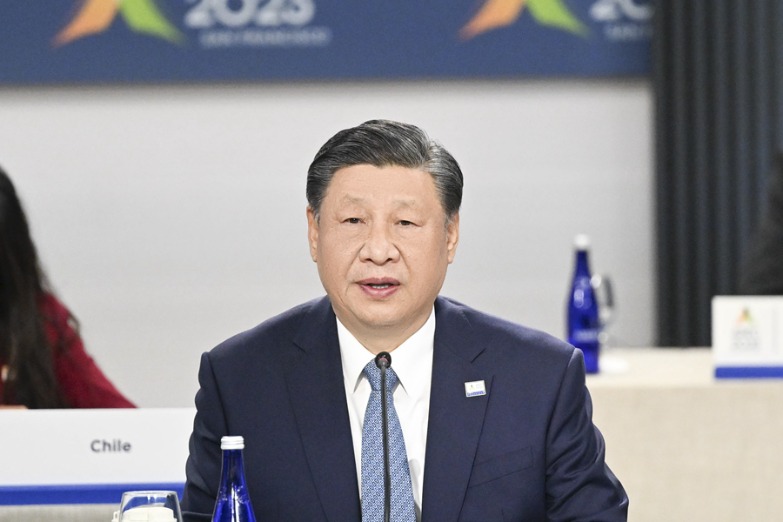
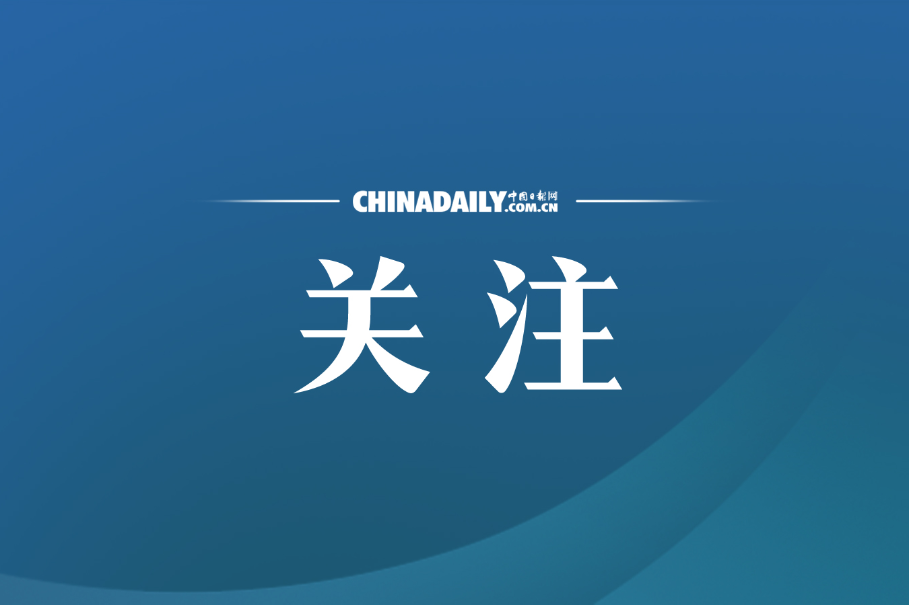
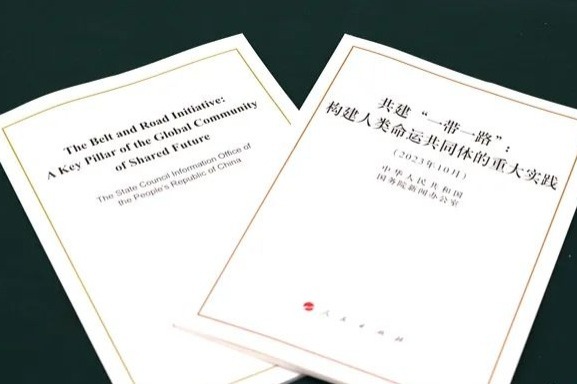
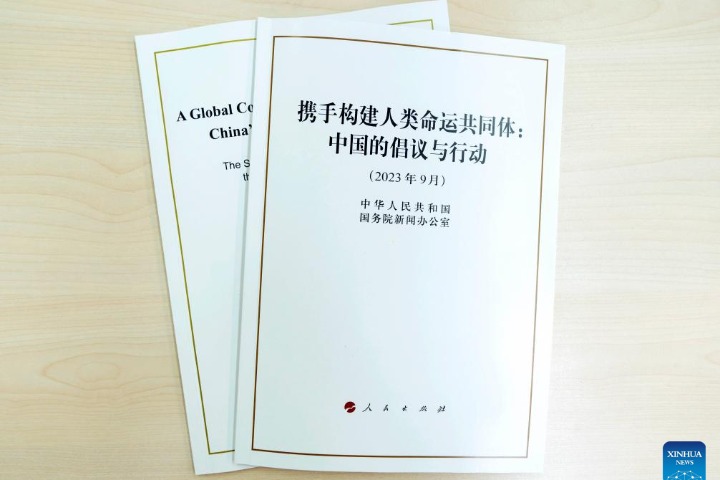
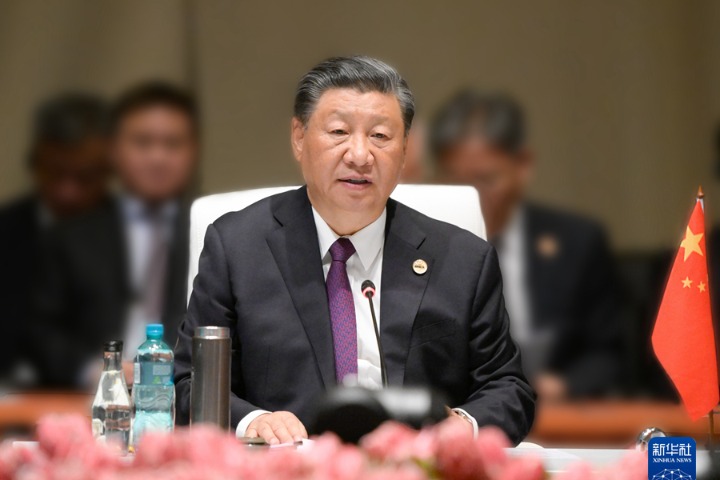



 英语点津微信
英语点津微信 双语小程序
双语小程序